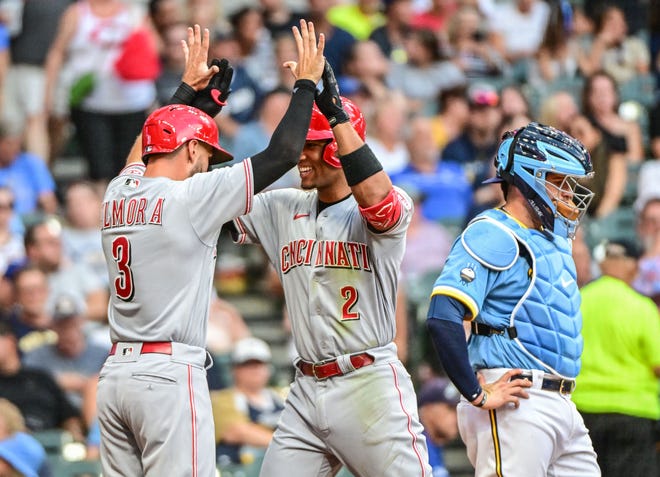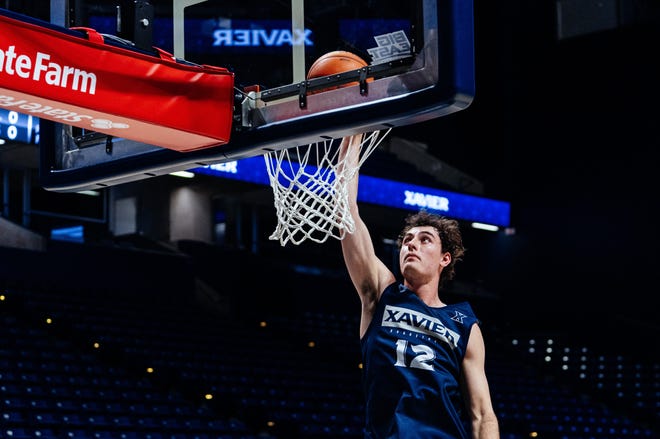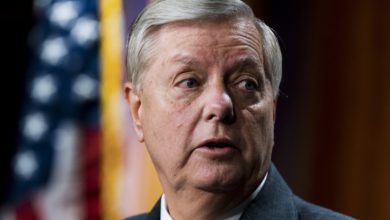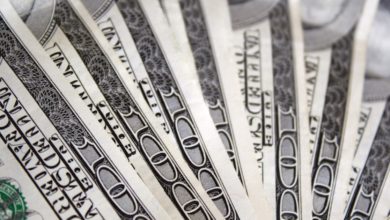

Warning: The following content may be distressing for some viewers.Hundreds of New York firefighters and police officers immediately headed to work once Flight 175 hit the South Tower. One of those officers was Louis Savelli.After leading the NYPD counter-terrorism unit created in the aftermath of the attack for many years, the born-and-bred New Yorker eventually moved his family to Iowa for a fresh start, opening an authentic pizzeria in 2014. He brought a little piece of the Big Apple with him: posters, pizza ovens and his prized accent. The retired detective came to Camp Dodge with lessons learned from 9/11 to teach counter-terrorist training to law enforcement all over the country."That was my unit... to arrest members of Al-Qaeda," Savelli said. "When the second plane hit, which I knew right away, and then everybody knew right away that was a terrorist attack. I ran right into work," Savelli said. It was a life-changing day burned into his mind. "The streets of New York were mayhem," Savelli said. "People were trying to drive all over to get places. Nobody was stopping at lights. Horns were beeping. It was something out of a movie, like a science fiction movie."Savelli shared photos that he had captured from ground zero. "It was just constant dust for quite a while, from all the debris, from the pulverization of the buildings, all the stuff that was in the air. It was very surreal," Savelli said. He and his team worked frantically. "Trying to sift through tons and tons of rubble by hand, trying to find people. And then just being frustrated not really finding anything," Savelli said. However, there were only a few survivors. "A lot of memories of specific things... are kind of, like, blurry or nonexistent," Savelli said. "So a lot of things that happened, it's hard to remember specific things. But I do remember my recovery efforts at ground zero were mostly body parts. It's kind of hard to say on TV. I don't remember an entire person, finding an entire person on that day, on 9/11, and then throughout that time. I assume that ... not remembering is a part of my mind blocking it out." Now, 20 years later, he cannot block it out. Like many of the first responders, Savelli is suffering. The dust he breathed in at ground zero has caused asthma, skin cancer and gut-wrenching stomach pain now. "Sadly, all those guys that stayed there looking for people and looking for DNA, and anybody who could've at least recovered something for the family, every one of them has gotten seriously sick," Savelli said. "At least 5,000 total first responders have died of cancer. And about 15,000, 20,000 have gotten some sort of serious cancer-related disease since then."In addition to the pain is the fear that terrorism will rear its ugly head on United States soil again after pulling out of Afghanistan. "Without a doubt, we are much more at risk today than we've been in a long time," Savelli said. "Are we going to have people like Taliban or ISIS or Al-Qaeda or Haqqani Network or some others coming in with them? And without a doubt that will happen. So we have to do a better job." Aside from his pizza businesses in Des Moines, Savelli also runs a security firm."I was a member of the NYPD on 9/11 at ground zero and you know we did our job, but the United States military sacrificed so much to go overseas and protect this country," Savelli said. "And they are my heroes." He said we should remember that the people willing to put their lives on the line, don't do it for the money. "The people out there sacrifice, for very little money. The cops, the firefighters, the military, EMTs, they make very little money," Savelli said. "But yet they risk their lives out there for strangers."
Warning: The following content may be distressing for some viewers.
Hundreds of New York firefighters and police officers immediately headed to work once Flight 175 hit the South Tower. One of those officers was Louis Savelli.
After leading the NYPD counter-terrorism unit created in the aftermath of the attack for many years, the born-and-bred New Yorker eventually moved his family to Iowa for a fresh start, opening an authentic pizzeria in 2014. He brought a little piece of the Big Apple with him: posters, pizza ovens and his prized accent.
The retired detective came to Camp Dodge with lessons learned from 9/11 to teach counter-terrorist training to law enforcement all over the country.
"That was my unit... to arrest members of Al-Qaeda," Savelli said.
"When the second plane hit, which I knew right away, and then everybody knew right away that was a terrorist attack. I ran right into work," Savelli said.
It was a life-changing day burned into his mind.
"The streets of New York were mayhem," Savelli said. "People were trying to drive all over to get places. Nobody was stopping at lights. Horns were beeping. It was something out of a movie, like a science fiction movie."
Savelli shared photos that he had captured from ground zero.
"It was just constant dust for quite a while, from all the debris, from the pulverization of the buildings, all the stuff that was in the air. It was very surreal," Savelli said.
He and his team worked frantically.
"Trying to sift through tons and tons of rubble by hand, trying to find people. And then just being frustrated not really finding anything," Savelli said.
However, there were only a few survivors.
"A lot of memories of specific things... are kind of, like, blurry or nonexistent," Savelli said. "So a lot of things that happened, it's hard to remember specific things. But I do remember my recovery efforts at ground zero were mostly body parts. It's kind of hard to say on TV. I don't remember an entire person, finding an entire person on that day, on 9/11, and then throughout that time. I assume that ... not remembering is a part of my mind blocking it out."
Now, 20 years later, he cannot block it out. Like many of the first responders, Savelli is suffering. The dust he breathed in at ground zero has caused asthma, skin cancer and gut-wrenching stomach pain now.
"Sadly, all those guys that stayed there looking for people and looking for DNA, and anybody who could've at least recovered something for the family, every one of them has gotten seriously sick," Savelli said. "At least 5,000 total first responders have died of cancer. And about 15,000, 20,000 have gotten some sort of serious cancer-related disease since then."
In addition to the pain is the fear that terrorism will rear its ugly head on United States soil again after pulling out of Afghanistan.
"Without a doubt, we are much more at risk today than we've been in a long time," Savelli said. "Are we going to have people like Taliban or ISIS or Al-Qaeda or Haqqani Network or some others coming in with them? And without a doubt that will happen. So we have to do a better job."
Aside from his pizza businesses in Des Moines, Savelli also runs a security firm.
"I was a member of the NYPD on 9/11 at ground zero and you know we did our job, but the United States military sacrificed so much to go overseas and protect this country," Savelli said. "And they are my heroes."
He said we should remember that the people willing to put their lives on the line, don't do it for the money.
"The people out there sacrifice, for very little money. The cops, the firefighters, the military, EMTs, they make very little money," Savelli said. "But yet they risk their lives out there for strangers."
Source link








